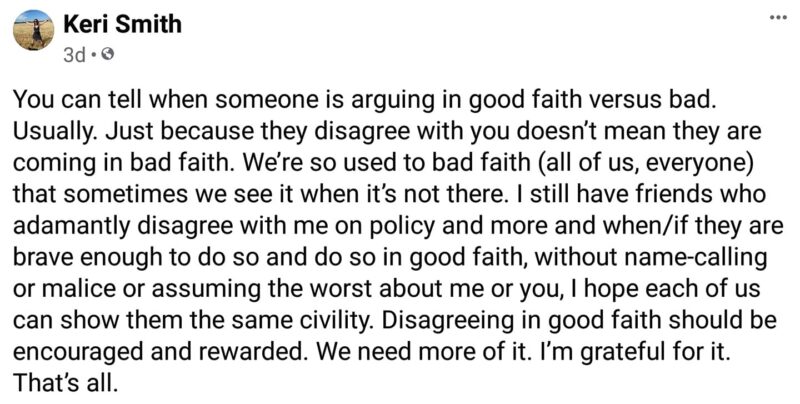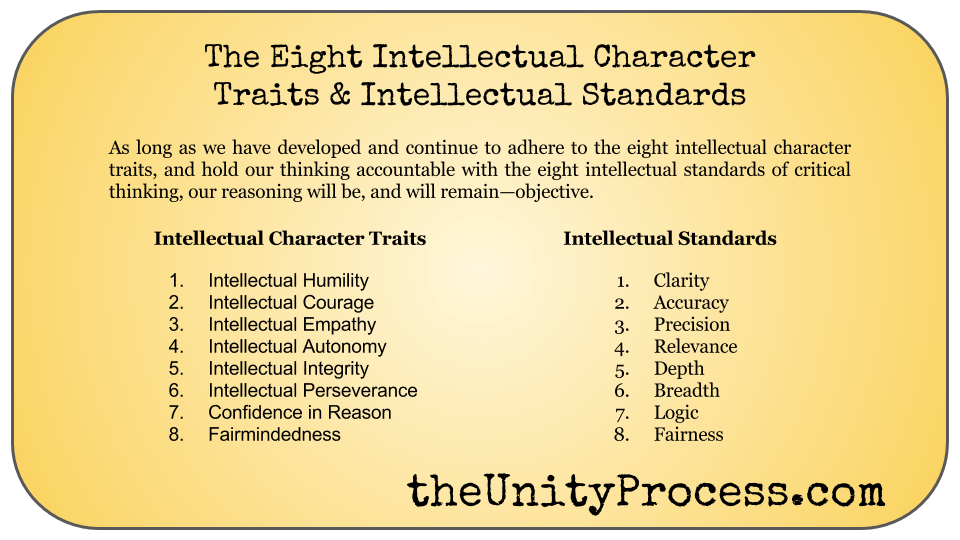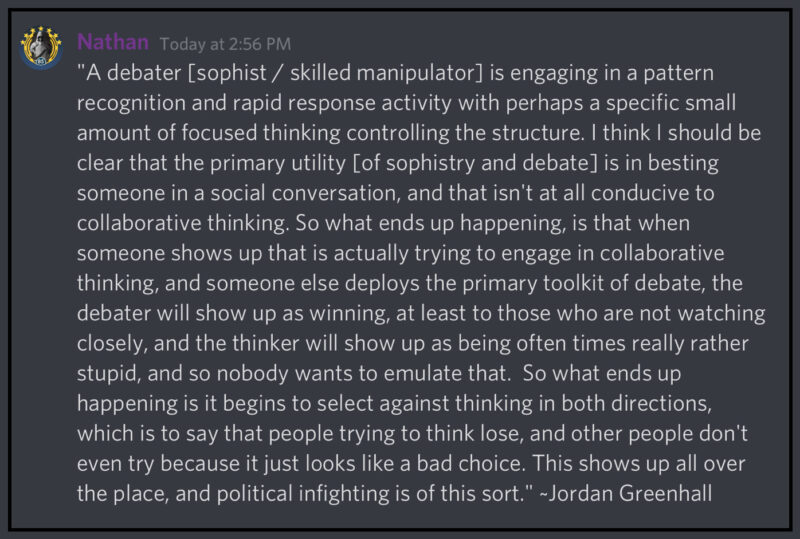Holding a conversation in good faith, which is a conversation that places the truth above one’s desire to win and be right, requires at least five (of the eight) intellectual character traits developed within the individual:
- intellectual humility, because an awareness of one’s limitations is necessary to engage free from the Dunning-Kruger Effect. Arrogant people assume to know way more than they actually do, whereas humble people are keenly aware of their own propensity for bias, and actively compensate for it.
- intellectual empathy, because one must understand other, often opposing viewpoints, to fully understand their own viewpoints.
- intellectual courage, because one must have the courage to listen to viewpoints that might break their own viewpoint, therefore overcoming what might have become cognitive dissonance.
- fairmindedness, because one should thoughtfully consider other information without rejecting it just because it differs from their own viewpoint.
- confidence in reason, because reason is the ultimate arbiter of truth, and if one follows its universal principles, and submits to them, they will not submit to lies and errors, or those who spew them.
Argumentative people who love to debate, known as sophists, actually make it harder for true intellectual and collaborative discussions, because it selects against thinking through punishing it, therefore according to Jordan Greenhall, causing onlookers to conclude that sophistry and the emotionally charged use of force defeats critical thinking.
A debater [sophist / skilled manipulator] is engaging in a pattern recognition and rapid response activity with perhaps a specific small amount of focused thinking controlling the structure. I think I should be clear that the primary utility [of sophistry and debate] is in besting someone in a social conversation, and that isn’t at all conducive to collaborative thinking. So what ends up happening, is that when someone shows up that is actually trying to engage in collaborative thinking, and someone else deploys the primary toolkit of debate, the debater will show up as winning, at least to those who are not watching closely, and the thinker will show up as being often times really rather stupid, and so nobody wants to emulate that. So what ends up happening is it begins to select against thinking in both directions, which is to say that people trying to think lose, and other people don’t even try because it just looks like a bad choice. This shows up all over the place, and political infighting is of this sort. ~Jordan Greenhall
THE UNITY PROCESS: I’ve created an integrative methodology called the Unity Process, which combines the philosophy of Natural Law, the Trivium Method, Socratic Questioning, Jungian shadow work, and Meridian Tapping—into an easy to use system that allows people to process their emotional upsets, work through trauma, correct poor thinking, discover meaning, set healthy boundaries, refine their viewpoints, and to achieve a positive focus. You can give it a try by contacting me for a private session.
[crypto-donation-box type=”tabular” show-coin=”all”]


